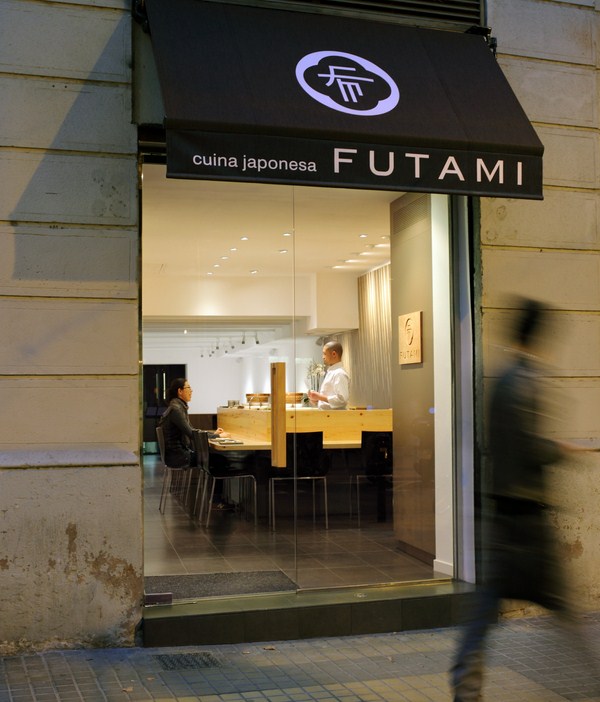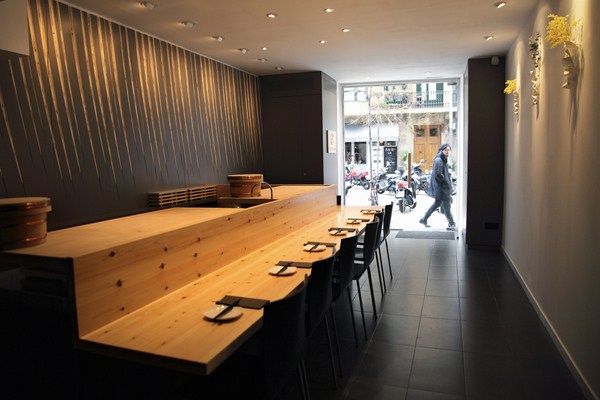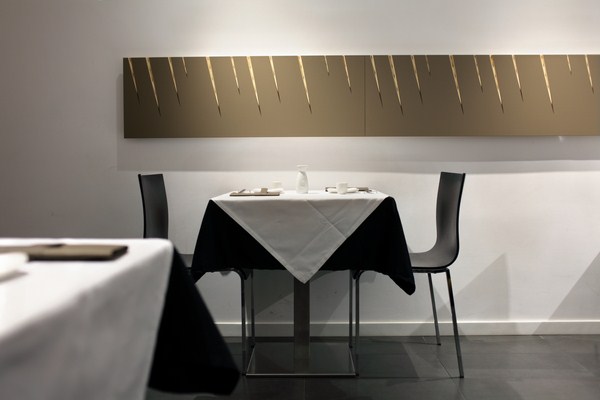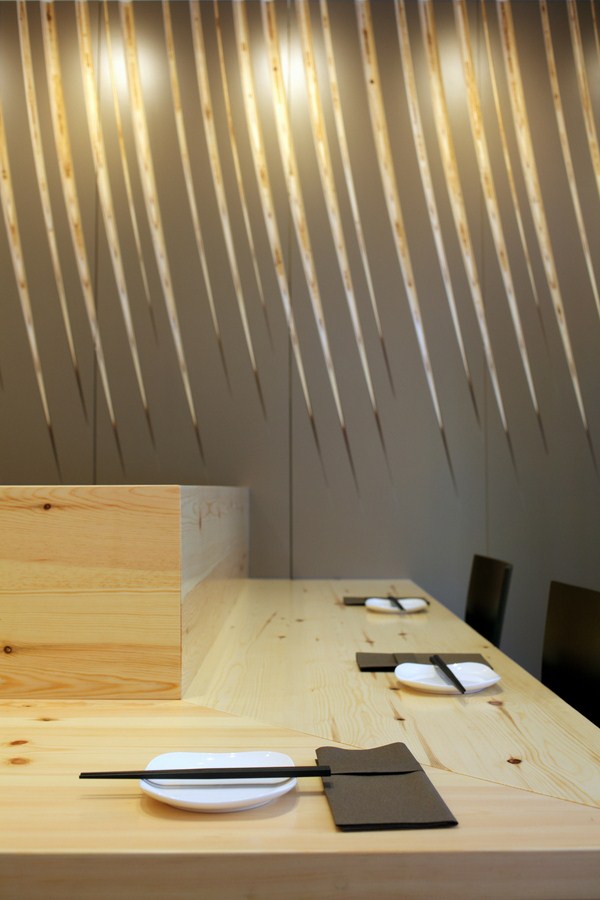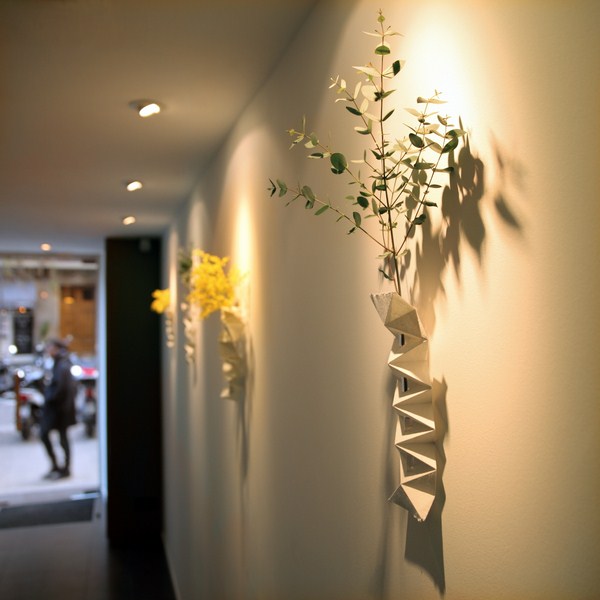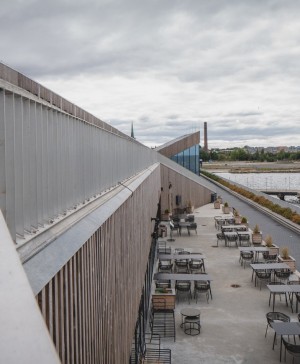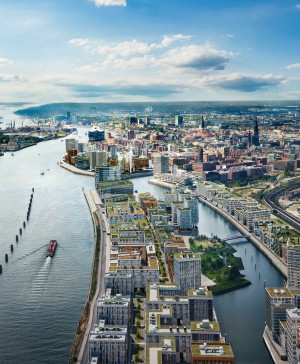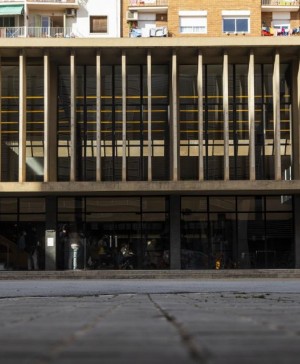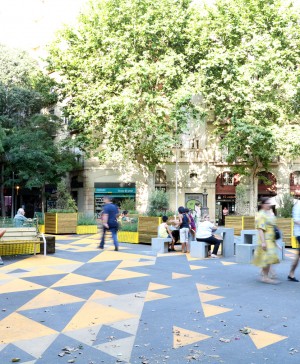Futami; Kobfuji Architects combine the Seto and Mediterranean seas with this Japanese Restaurant.
The soothing image of waves recalling the Seto Inland Sea (home of the owners) as well as the Mediterranean Sea is the dominant abstract image within this minimalist design which is characterised by materials like wood and ceramic.
The area around the bar, from where diners can contemplate the Itamae’s sushi techniques, is made using plywood panels that simulate untreated wood. The wall immediately behind the counter is decorated with a subtle abstract bamboo landscape. The minimalist origami vases displayed on the wall adjacent to the entrance provide another reference to Futami’s origins – multiple ceramic folds holding delicate fresh orchids.
According to the architects, “in a city like Barcelona the marriage between architecture and food is much easier because of the greater awareness of its citizens, something that we wanted to continue with Futami.”
Restaurante Futami
c/ Enric Granados 10
08007 Barcelona
http://www.kobfuji.com/

